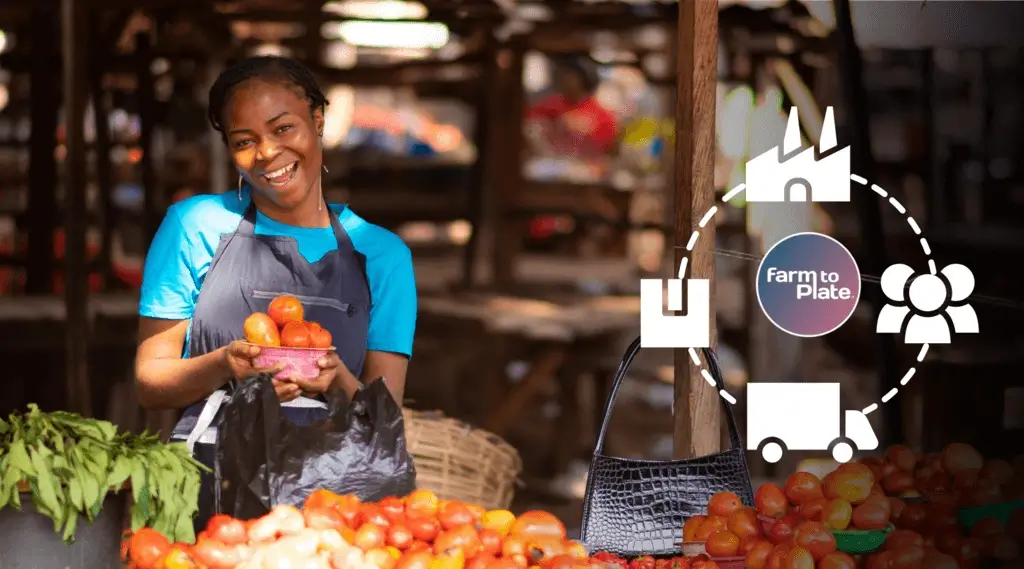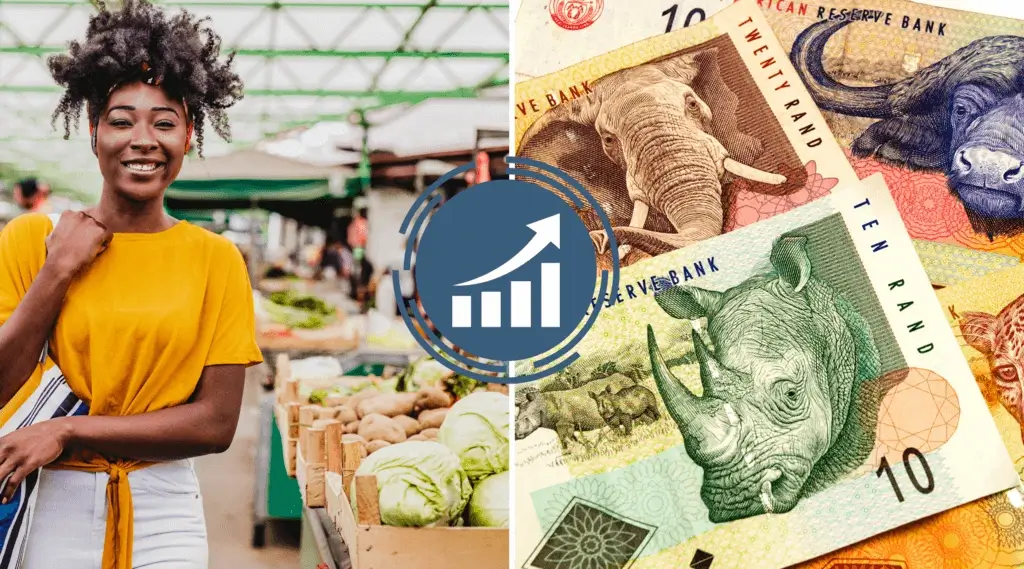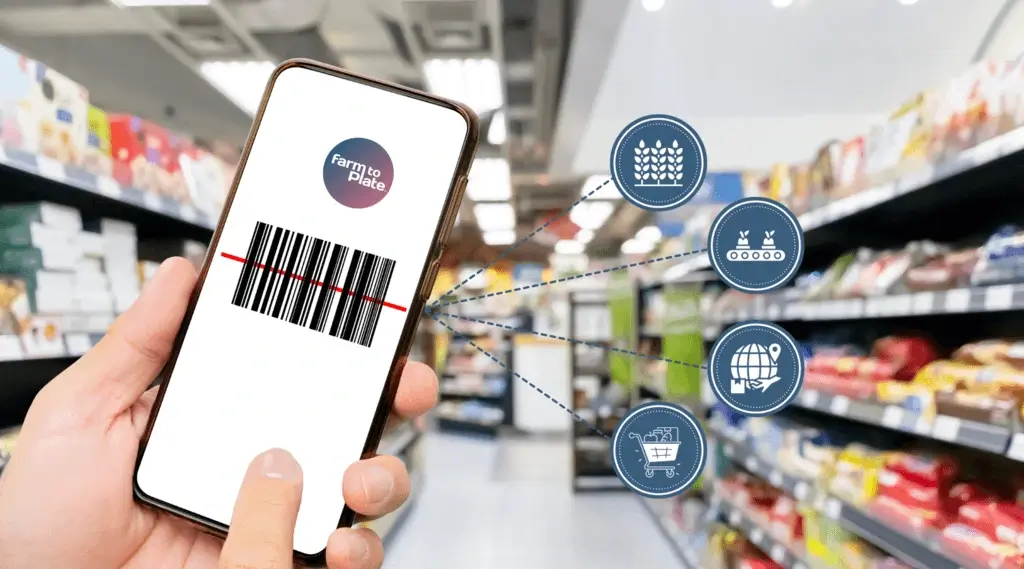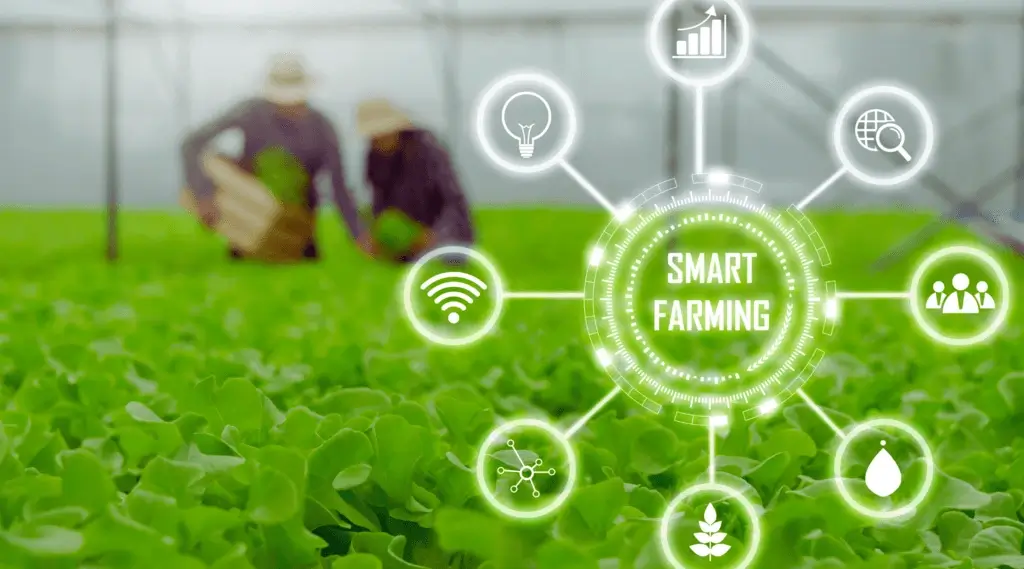South African food supply chain systems are undergoing a significant redefinition. The nation must re-evaluate and revolutionize food production, distribution, and consumption in the face of challenges like population growth, climate change, and shifting consumer preferences.
The goal is to tackle food security and sustainability, ensuring all South Africans have access to safe, nutritious, affordable food. By embracing innovative technology and collaboration, South Africa is leading the way towards a more resilient and efficient food supply system that can meet the demands of a rapidly changing society.
South Africa's Diverse Food Markets: A Culinary Mosaic

The South African Food and Beverage market is a vibrant mosaic, reflecting the nation’s rich cultural heritage. With a diverse range of cuisines and flavors, it offers a tantalizing array of choices for locals and visitors. However, in an era of increasing consumer awareness and demand for transparency, traceability has emerged as a crucial factor in the market.
By ensuring that each ingredient can be traced back to its source, South African F&B markets can give consumers the confidence and assurance they deserve. It enhances food safety and promotes sustainability and fair trade practices. Statistics reveal that consumers increasingly prioritize traceability when purchasing, making it a critical aspect of the food and beverage industry.
While the South African F&B market is a tapestry of flavors, it has challenges. The intricate threads of food supply chains in Southern Africa face numerous obstacles, ranging from transportation and distribution issues to the essence of agriculture and the need to adapt to evolving food technologies.
One of the critical challenges is maintaining quality throughout the supply chain. From farm to consumer, ensuring that the food and beverages being produced and transported meet the highest standards is essential.
Additionally, regulatory requirements play a vital role in shaping the industry, with strict guidelines impacting everything from food safety to labeling and packaging.
The Intricate Threads of Food Supply Chains in Southern Africa

Tech-Forward Strategies Reshaping South African Food Landscape

In an era of rapid technological advancements, the South African F&B sector embraces technology to reshape its landscape. Technology is revolutionizing how food is produced, distributed, and consumed, from farm management systems to consumer-facing apps.
Adopting technology has brought numerous benefits to the industry, including increased efficiency, enhanced traceability, and improved supply chain management.
The Scale of the South African Food Market

The food supply chain market in South Africa has shown consistent growth in recent years, reaching a value of approximately $29.7 billion in 2019. However, disruptions occurred in 2020 due to the impact of the COVID-19 pandemic. Despite this setback, the market is expected to continue expanding in the years ahead, with an estimated value of around $40 billion by 2025.
The growth of the market can be attributed to various factors, including population growth, evolving consumer preferences, and an increasing demand for convenient food options.
By 2023, the F&B market is projected to generate a revenue of US$29.08 billion, with the largest segment being confectionery and snacks, accounting for a market volume of US$6.15 billion in 2023 (CAGR 2023-2028).
Navigating Hurdles: South African Food Supply Chain Challenges
The food supply chain in South Africa faces several challenges that affect the overall availability, affordability, and quality of food.
Thorough research reveals the following key issues:
1. Unequal Distribution:
In the South African food supply chain, uneven distribution poses a challenge. While some areas are abundant, rural regions and townships need help accessing nutritious and affordable food due to infrastructure limitations and socio-economic disparities.
2. Food Insecurity:
South Africa battles food insecurity despite agricultural richness. Poverty, unemployment, high prices, and limited access to resources result in hunger and malnutrition among a significant portion of the population.
3. Climate Change and Drought:
South Africa, a country vulnerable to climate change and particularly drought, encounters challenges in its agricultural sector. Reliance on rainfall makes prolonged droughts impactful, affecting crop yields and livestock. Climate change compounds existing food supply chain issues.
4. Post-Harvest Losses:
Inadequate storage, handling, and transportation contribute to post-harvest losses in the South African food supply chain. These losses impact food availability and lead to economic losses for farmers and increased consumer prices.
5. Food Safety and Quality:
Ensuring food safety and quality is critical. Poor handling practices, hygiene standards, and regulatory enforcement contribute to food contamination, posing health risks. Maintaining high standards is crucial for consumer well-being.
6. Market Access for Small-Scale Farmers:
Small-scale farmers struggle to access formal markets due to limited information, infrastructure, and financial resources. Enhancing market access and supporting these farmers is essential for reducing inequalities and improving food security.
Addressing these challenges requires a multi-faceted approach involving government interventions, private-sector collaboration, and community engagement. Strategies may include investing in infrastructure development, promoting sustainable farming practices, supporting small-scale farmers, and implementing policies that ensure equitable access to nutritious food for all of South Africa.
How Farm to Plate Orchestrates the Conquest of Supply Chain Hurdles
Overcoming Food Supply Chain Challenges in South Africa
1. Streamlined Data Collaboration:
- Farm to Plate enforces GS1 standards for smooth collaboration and data exchange across the supply chain.
- Facilitate seamless communication and information sharing.


2. Dynamic Asset Visibility:
- Farm to Plate's live tracking ensures the smooth, real-time movement of produce from farm to consumer.
- Our platform enhances transparency and monitoring capabilities through advanced tracking technologies.
3. Enhancing Food Safety and Quality:
- Farm to Plate's live tracking ensures the smooth, real-time movement of produce from farm to consumer.
- Our platform enhances transparency and monitoring capabilities through advanced tracking technologies.


4. Facilitating Direct Market Access:
- We connect farmers directly with consumers through farmers' markets and online platforms.
- Our platform enhances transparency and monitoring capabilities through advanced tracking technologies.
5. Digital Traceability for Confidence:
- The smart labels ensure end-to-end traceability in B2B transactions.
- The QR codes of Farm to Plate provide detailed information on the food product's origin, production methods, and journey, fostering transparency and trust among B2C and B2B consumers.


6. Recall Efficiency:
- Our end-to-end digital traceability streamlines recall processes, minimizing costs, reducing food waste, and ensuring swift, targeted responses to potential risks.
7. Strengthening Local Agriculture:
- Promoting and supporting local farmers to increase agricultural production
- Encouraging sustainable farming practices to enhance productivity.

The Farm to Plate initiative holds significant potential in addressing South African market challenges. Connecting farmers with retailers and distributors through digital platforms ensures product traceability, quality assurance, and fair prices. It reduces food waste and enhances efficiency in the agricultural sector, promoting sustainable development goals locally and internationally.